Photographs: Johann Rela/Wikimedia Commons
Is what you believe about making the right food choices absolutely true?
'Drink your milk, it's good for your bones,' we were told by our mothers, and we obeyed. We were also told to eat meat to become strong; and we dutifully passed on the rice for fear of growing fat.
Our parents brought us up with some accepted notions about food, and we pass these on to our children. But how much of what we were told is actually true? Here we put five commonly held food beliefs to the test, to find out if they live up to their claim.
1. An apple a day keeps the doctor away
"Apples are actually as healthy as claimed," says Parita Furia, dietician at Parakh Hospital, Mumbai. "This is because they are low in calories and high in water and fibre, which helps to lower cholesterol. They are also rich in antioxidant compounds, called flavonoids, which prevent plaque formation in arteries, and thus lower the risk for heart problems."
There are other benefits you can derive. Furia explains, "Apples eaten with the skin are a good source of insoluble fibre and help to relieve constipation. Fresh apple juice, obtained without straining and consumed without sugar, is a good source of antioxidants and fibre. Those suffering from diarrhoea or bleeding in the intestinal tract should eat apples after removing the skin."
Dr Barry Sears, author of The Top 100 Zone Foods writes, "Apples are a good source of soluble fibre, especially pectin, which helps control insulin levels by slowing the release of sugar into your bloodstream. Pectin also helps reduce cholesterol levels by lowering insulin secretion."
The flavonoid querctin found in apples is said to prevent cancers, such as of the prostrate, and other diseases.
Apples are also a good source of Vitamin C and potassium. Besides, the malic and tartaric acids in apples are said to inhibit fermentation in the intestines. Green apples, it is believed, cleanse the liver and have a softening effect on gallstones.
Verdict: Apples get full marks as a patent remedy against pesky physicians.
Tip: Eating apples with the skin is recommended to derive maximum benefit from them. What about those who loathe apples? "Apples, strictly speaking, cannot be replaced by any other food. However, beetroots or watermelons may provide more or less similar benefits," advises Furia. Querctin, the 'wonder' flavonoid is also abundant in onions, tea and red wine.
2. Meat makes you strong
Image: You don't need meat to make you strongPhotographs: Jon Sullivan/Wikimedia Commons
Meat is rich in protein. Protein is converted to muscle. So does eating meat make you strong? Well, not exactly.
Based on its source, protein is generally classified as animal or vegetable protein. While animal protein such as meat was once considered important, today's experts think otherwise. "You don't require meat to be strong. You can be just as healthy and strong on a vegetarian diet," affirms nutritionist and fitness expert Rujuta Diwekar.The reason animal sources of protein were considered superior is because they contain all nine essential amino acids, in contrast to vegetable sources, which lack at least one. But experts now accept that a balanced vegetarian diet is equally effective.
"Vegetarians can easily satisfy their protein requirement from sources such as dal (lentils) or sprouts," says Diwekar. "A typical Indian meal, comprising of vegetables or dal cooked with a tadka (tempering) of spices such as jeera (cumin) or rai (mustard), along with rice or roti, has a complete amino acid profile," she explains.
But there's more to it. Widely conducted research seems to link meat, especially red meat, with serious conditions such as coronary heart disease, cancers, bone loss, diabetes, hypertension and arthritis. The American Institute for Cancer Research (AICR) recommends limiting red meat consumption to three ounces a day or less.
"Our digestive system is not designed for meat. It is a lot more efficient at digesting vegetarian food," explains Diwekar. "People who eat a lot of meat with the idea of getting protein are missing the mark," she says.
Muscles without meat? Yes, say even bodybuilders like jazz guitarist, Kevin Eubanks. "You don't have to eat a lot of beef or chicken to keep your muscle mass up," says Eubanks who has featured in magazines such as Muscle and Fitness and Flex. "You do need adequate amounts of protein to build muscle, though. But I can easily get what I need from vegetarian sources."
Verdict: You don't need meat to make you strong. Vegetarian alternatives will do the job.
Tip: You can get animal protein from fish, eggs or milk. You can also rely on vegetable sources of protein such as nuts, seeds, beans, pulses, soya products and vegetables.
3. Carrots are good for your eyes
Image: Carrots provide Vitamin A, which is good for your eyesPhotographs: Wikimedia Commons
"Carrots are rich in the pigment beta-carotene, which gets converted to Vitamin A in its active form in the body. Vitamin A is a key element for healthy vision," says Parita Furia, dietician, Parakh Hospital, Mumbai. Research has also shown that Vitamin A helps to fight other eye-related disorders such as cataracts, glaucoma and macular degeneration.
So consuming beta-carotene or Vitamin A is essential for good eyesight. However, popping a Vitamin A pill may not be an adequate solution. Explains Furia, "Vitamin A taken in the form of a pill or in capsule form is not completely absorbed by the body, as compared to natural sources of either B-carotene or Vitamin A.
Carrots are among the richest sources of beta-carotene. Besides, they are rich in vitamins C and E, and zinc. A study in the Journal of the American Medical Association says the risk of age-related macular degeneration (AMD) can be prevented by eating foods that are rich in these elements.
Verdict: Carrots provide Vitamin A, which is good for your eyes -- mom wasn't dangling a carrot for nothing.
Tip: Apart from carrots, beta-carotene is also found in other orange-coloured vegetables and fruit, such as apricots, cantaloupes, mangoes, papayas, peaches, pumpkins and sweet potatoes. Rich sources of Vitamin A include amaranth, coriander, drumsticks, spinach, butter, curd, milk, egg yolk and liver.
4. Starch just makes you fat
Image: Pasta is a healthy sources of starch, which your body needsPhotographs: Luigi Chiesa/Wikimedia Commons
Starchy foods such as rice, bread and potatoes belong to the class of foods called carbohydrates. They provide the body with energy to function. Your diet should, therefore, have adequate carbohydrates to fulfill your body's needs.
Carbohydrates are of two types, simple and complex. Simple carbohydrates include sugars, while complex carbohydrates include starch. Your body assimilates both carbohydrates differently. Sugar is absorbed quickly, producing instant energy but inducing hunger immediately afterwards. Excess sugar is converted into fat. Sugar is thus not a good long-term source of energy.
In contrast, starch burns slowly, providing energy over a much longer period and is the ideal source of energy for the body. John Vanderveen, of the FDA's Center for Food Safety and Applied Nutrition, estimates that 55 percent of the calories in our diet should come from these complex carbohydrates.
Starchy foods such as vegetables and whole grains also contain fibre, which aids digestion by providing roughage.
Medical studies have also linked fibre in food with the prevention of certain cancers.
"While starch, by itself is not fattening, how you consume it is important," cautions Rujuta Diwekar. She recommends boiling or baking potatoes instead of frying them. "Deep-frying will make any vegetable, not just potatoes, fattening and unhealthy," she explains. Again, brown rice is healthier than white. "This is because the milling process robs the rice of essential B vitamins and fibre," she adds.
Verdict: Stock up on starch -- your body needs it. However, guard against the fat you eat along with it.
Tip: You can get complex carbohydrates from a range of healthy sources such as potatoes, pasta, rice, grains, beans, whole wheat bread and vegetables.
5. Milk is important for strong bones
Image: Milk and milk products may contribute to strong bones, but are by no means indispensablePhotographs: Stefan Kuhn/Wikimedia Commons
Milk contains calcium, which is important for the health of bones and teeth and other bodily functions. Calcium deficiency is linked to rickets (weakening of bones), reduced blood clotting and, particularly in the case of women, osteoporosis.
A calcium-rich diet is important to support healthy bone development, especially upto the age of 30, when maximum bone production takes place. Milk and its products are considered good sources of calcium, because they also contain Vitamin D, which is important for calcium absorption. They are also a good source of Vitamin A and potassium.
But there's a problem. "Many people are lactose-intolerant and cannot digest milk properly," explains Rujuta Diwekar. "Such people can easily meet their calcium requirements from non-milk sources such as nuts, figs and certain fruit and veggies," she says.
The medical opinion on milk as an important source of calcium is divided. A Harvard study associated galactose, a sugar released during the digestion of milk, with damaged ovaries and ovarian cancer. Japanese researchers also suggest that milk's hormone composition, due to modern production methods, increases the risk of hormone-related cancers, including ovarian cancer.
Some experts also believe that milk products, like other animal proteins, drain calcium from the bones during digestion. Others disagree, saying that the amount of calcium lost is insignificant in comparison to the overall nutritional benefits of milk.
What all experts seem to agree on is that just consuming more calcium is not enough. "You can improve your calcium absorption by increasing your intake of omega-3 and omega-6 fats, which aid the absorption of calcium. Similarly, you can cut down on smoking, tea, coffee and excess sugar or salt, all of which inhibit calcium absorption," explains Diwekar. "Regular exercise and a healthy weight contribute to strong bones. Also, every person above 30 years of age should take a calcium supplement," she explains.
Verdict: Milk and milk products may contribute to strong bones, but are by no means indispensable.
Tip: If you loathe dairy, nothing's lost. Get calcium from almonds, sesame seeds, ragi (finger millet), tofu and soya milk. Vegetables such as amaranth, beans, broccoli and okra, and fruit such as figs and oranges also contain calcium.

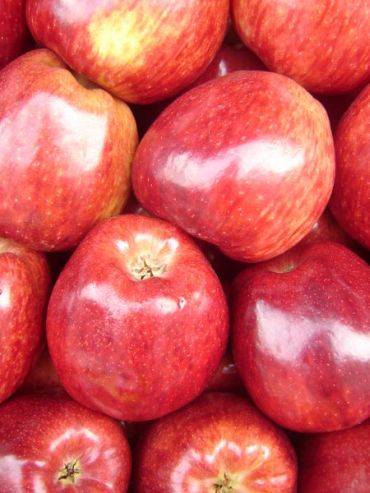
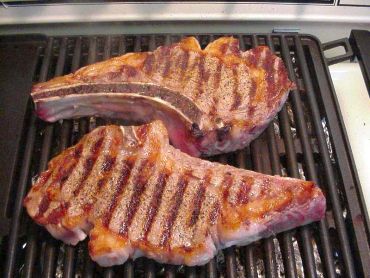
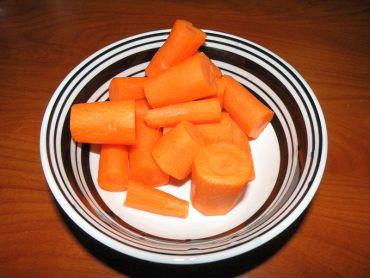
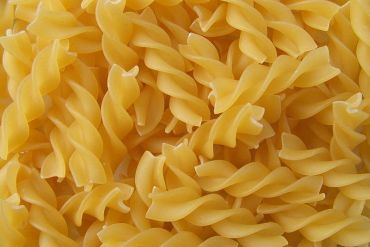
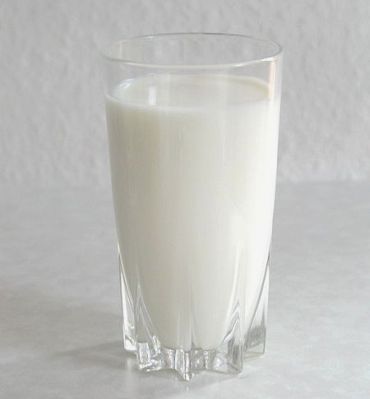

Comment
article